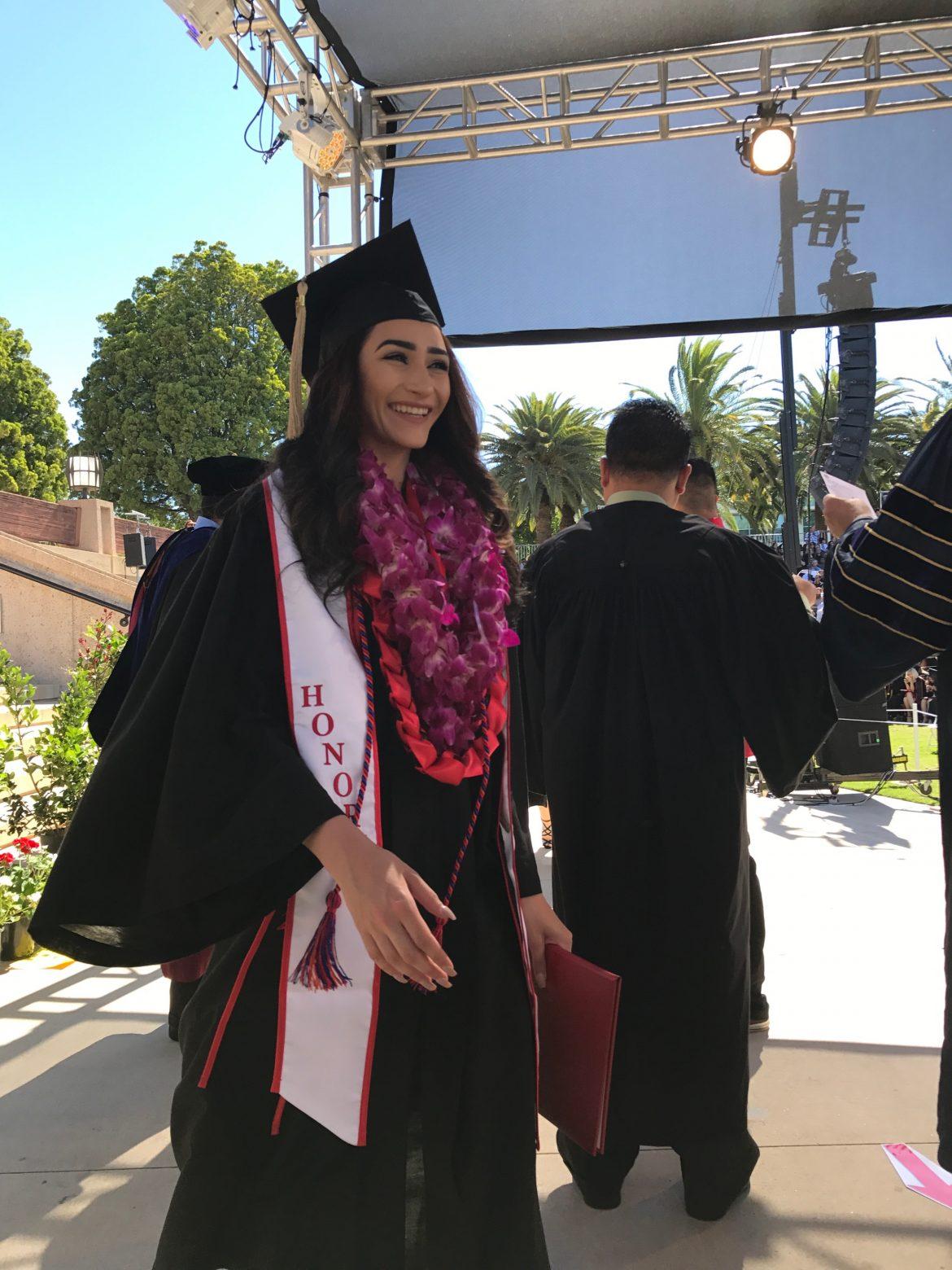Graduation is fast approaching but there is one question that is on every graduating student’s mind: “What’s next?”
There are three paths that college graduates usually take after getting their diplomas: employment, unemployment or continuing education.
Shushan Kapaktchian, 22, graduated last year with a major in Accounting and Finance.
“When I first started at CSUN I wanted to get into the Big Four just like most of the other students in the Accounting program,” she said, “but once I started seeing other opportunities that existed in the field, I went in another direction.”
She worked for Associated Students during her years at CSUN and was working part-time as an accountant for a production company even before she graduated.
“Your circle and the internet are your best friends for finding a job after college,” she said. “Do as much research as you can to see what jobs are out there. There can be positions you didn’t even know existed.”
Kapaktchian emphasized on the importance of building connections in landing your dream job. In one of the workshops she attended she remembered that, “Networking is one letter away from Not Working.”
She is currently working as an accountant for “The Ellen Degeneres Show”. One of the friends she met at Associated Students referred her to her current boss, who is also a CSUN alumnus. She landed this job a week before her graduation.
“Do an internship or try to get a part-time job in the field you are trying to get into,” Kapaktchian said. “Besides academics, networking and experience is key.”
Kapaktchian is one of the students who were fortunate enough to get a good-paying job in her field.
But a study done by the New York Federal Reserve Bank shows that despite the decreasing unemployment rate, the quality of jobs available are also declining.
College graduates are increasingly settling for non-college jobs, low wage jobs or even part-time jobs.
About one-third of recent college graduates work in jobs that doesn’t require a college degree while a fifth choose to settle for low wage jobs which pays $25,000 a year. Part-time work also increased to 23 percent.
The lack of good, high-paying jobs is one of the reasons why more and more college graduates choose to continue their education despite the increasing cost of education.
In Fall 2016, there are more than two million applications for graduate programs in the country.
One of them is Tiago Barreiro, 30, who is working for a master’s degree in Mass Communication. He graduated in 2016 with a major in Film Production.
He is an international student from Brazil and had only one year to stay in the U.S. after graduation if he manages to land a job in a field related to his major.
“It’s really hard [to get a job] if you don’t know anyone who can recommend you,” Barreiro said. “Luckily, a fellow classmate recommended me to his father who was making a film and needed a first assistant director. I stayed on afterwards by working in editing and PR for the film and company.”
Coming back to school was a necessity for him to stay in the country and continue to explore his options. But like any other graduating student, choosing what to do after graduation was a difficult decision.
“My last semester was full of uncertainty and stress,” he said. “But as long as you commit to your academic goals and don’t let distractions take your focus away, all stress is rewarded.”
Barreiro currently works as an associate producer at Classics in Miniature, a movie production company that produces marionette films based on classic literature.












